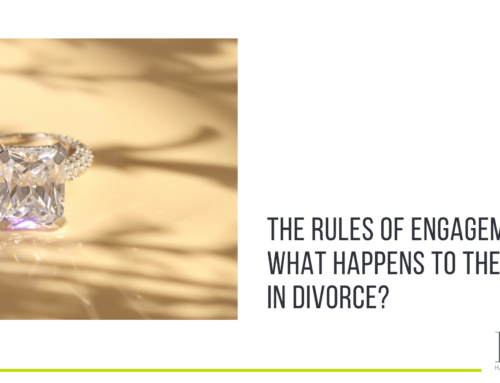The law
Under the current law, introduced in 1973, couples must blame the other to get a divorce, unless they have been separated for two years. To blame the other person, they must cite either their “unreasonable behaviour” or their adultery. This is not very helpful for those couples who have mutually agreed that their marriage has broken down, but there is no one at fault.
There has been a growing consensus among many family law specialists that couples should be allowed to divorce without having to blame each other and this has been gaining momentum.
Any divorce process is often an emotional rollercoaster for those involved but in most cases couples want to avoid confrontation and disputes. Resolving problems outside the courts, reducing conflict and the burden on the family courts are just some of the reasons why the campaign for ‘no fault’ divorce has gained a lot of support.
So what’s changed?
The government has now laid out its plans to remove blame and fault from the divorce process. The “Divorce, Dissolution and Separation Bill” was introduced to the House of Commons yesterday. This has been described as the biggest shake-up in family law for nearly 50 years.
But what does this mean?
The Divorce, Dissolution and Separation Bill would mean that couples are no longer required to blame the other person and instead can simply say there has been an “irretrievable breakdown”. The Bill also means that it will not be possible to contest the decision to divorce and, 20 weeks following the start of the proceedings, the court will be able to make a conditional order.
The Justice Secretary, David Gauke, said: “Marriage will always be a vitally important institution in society, but when a relationship breaks down it cannot be right that the law adds fuel to the fire by incentivising couples to blame each other”.
Many family law experts and very senior judges agree.
When considering the news of the Bill, Harrogate Family Law’s Managing Director, Andrew Meehan said: “Here at Harrogate Family Law we are keen to see any changes that make it easier for families to maintain good communication and positive relationships after divorce. Ending the blame culture that exists under the current system can only help towards that goal”.
What’s next?
It is important to note that these changes to family law have not yet been introduced and there is not currently a date announced for the second reading of the Bill. However, this news is a positive step in the right direction and we will provide further updates as we have them.
In the meantime, if you are considering divorce and would like advice about how to move forward please call one of our friendly solicitors for a confidential chat on 01423 594680.
Andrew Meehan is an experienced family lawyer specialising in complex divorces involving significant or hidden assets, as well as cases involving children.
He is recommended for family law by both Chambers 2019 (York, Hull and surrounding regions) and the Legal 500 2018 (Leeds/West Yorkshire and North Yorkshire region).
Everyone’s circumstances are different and this article is provided by way of general information only and must not be relied upon. If you require legal advice on a family law issue, please feel free to contact us by emailing enquiries@harrogatefamilylaw.co.uk.






